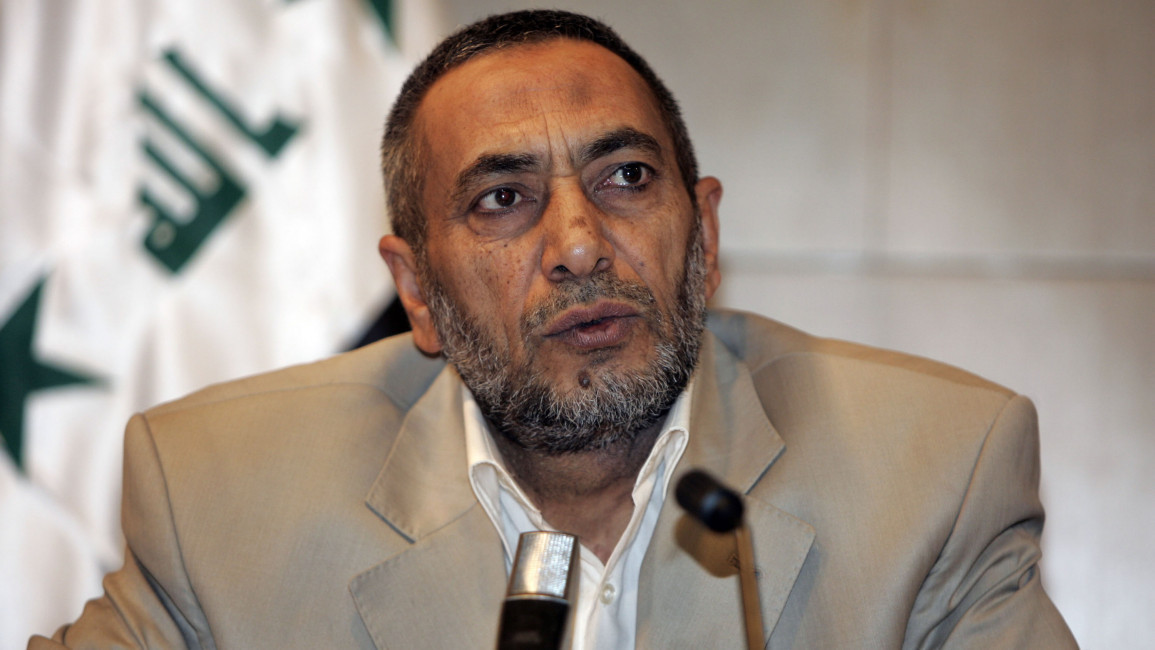Political deadlock in Iraq continues as Sunni alliances rival over backing former parliament speaker Mahmoud Al-Mashhadani for re-election
Iraq's political landscape remains deeply uncertain, as the Azm and Sovereignty Alliances have officially thrown their support behind Mahmoud Al-Mashhadani for the position of Speaker of the Iraqi Parliament.
This move is part of a broader effort to resolve a deep political stalemate that has left the position vacant for more than nine months, leading to a legislative paralysis that has stalled key decisions and further complicated Iraq's political challenges.
The speaker's position has been unfilled since November 2023, following the removal of Mohammed Al-Halbousi by Iraq's Federal Supreme Court. Al-Halbousi, leader of the Progress Party, was ousted amid allegations and a legal challenge that questioned his legitimacy. Since then, Iraq's parliament has been mired in a struggle to elect a new speaker, with various factions unable to reach a consensus on a suitable candidate.
The recent announcement by the Azm Alliance, led by Muthanna al-Samarrai, and the Sovereignty Alliance, headed by Khamis Al-Khanjar, in support of Al-Mashhadani is seen as a coordinated effort to break the deadlock.
Al-Mashhadani, a veteran politician who served as Speaker from 2006 to 2009, is recognised for his experience and balanced approach. His supporters believe these qualities are essential in navigating Iraq's current political complexities.
In a joint statement, the Azm and Sovereignty Alliances emphasised that their decision to back Al-Mashhadani was influenced by ongoing efforts from the Coordination Framework (CF) and the Kurdistan Democratic Party (KDP).
These groups have been actively working to resolve the Sunni leadership dispute and ensure that the Speaker’s election is conducted in accordance with the Federal Court's ruling. The alliances underscored the need to avoid any constitutional errors during this critical process, as the legitimacy of Iraq's legislative body hangs in the balance.
The Coordination Framework, a coalition of Shiite parties that excludes the influential Sadrist movement, had set a deadline of 20 July to resolve the Sunni leadership issue. However, this deadline passed without any resolution, highlighting the deep divisions and complexities within Iraq's political arena. Despite the CF's efforts, Sunni political factions remain divided, with no clear consensus on who should take the speaker role.
Further complicating the situation, sources within the Coordination Framework disclosed that Mohammed Al-Halbousi had formally proposed Ziad al-Janabi, leader of the Initiative Bloc, as a candidate for the Speaker position.
This proposal reportedly garnered support from over 50 Sunni lawmakers, indicating the ongoing factionalism within the Sunni political landscape. Nonetheless, the Coordination Framework has stated it will not amend the House's by-laws and will adhere strictly to the Federal Court's decision to elect a speaker during the first parliamentary session, without reopening nominations for new candidates.
The deadlock has caused multiple delays in parliamentary sessions. The most recent vote on May 19, 2024, failed to produce a new speaker, with Al-Mashhadani receiving 137 votes and his rival, Salem al-Issawi, securing 158 votes—neither reaching the required majority of 165 votes. The session was marked by significant tensions and deep political divisions, reflecting the broader challenges facing Iraq's political system.
As Iraq prepares for the upcoming Arbaeen Pilgrimage, a major religious event in Shia Islam, the issue of electing a new speaker has been deferred. The pilgrimage, which marks the end of the 40-day mourning period for Imam Hussein, is expected to draw millions of participants from across Iraq and beyond, providing a temporary pause in the political turmoil.
However, once the pilgrimage concludes, Iraq's political factions will need to resume their efforts to resolve the leadership crisis. The decisions made in the coming weeks will be crucial in shaping Iraq's legislative future and determining whether the country can overcome this period of political instability.
Al-Mashhadani, 74, who previously served as the parliament speaker from 2006 to 2009, is a seasoned politician with a reputation for professionalism. He was forced to resign from his previous tenure following accusations of "rude behaviour" towards deputies.
Despite this, Al-Mashhadani remains a respected figure, known for his experience and measured approach, which his supporters believe are crucial for Iraq's current political landscape.
The ongoing deliberations, while complex, underscore the importance of unity and adherence to constitutional processes in maintaining Iraq's sovereignty and stability.







 Follow the Middle East's top stories in English at The New Arab on Google News
Follow the Middle East's top stories in English at The New Arab on Google News


